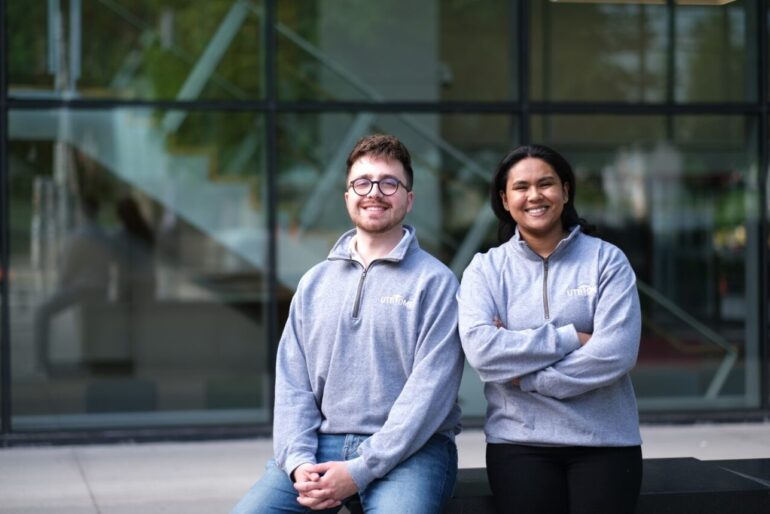At the University of Toronto, the University of Toronto Biomedical Engineering design team, or UT BIOME. stands as a beacon of innovation within the academic landscape. Led by co-managing directors Luka Zigomanis (4th year EngSci) and Rubaina Farin (4th year Life Sci), UT BIOME embodies a commitment to excellence in biomedical engineering. With a focus on innovation, community engagement, and leadership development, the organization provides undergraduate students with a unique platform to explore the convergence of medicine and engineering.
Under the dynamic leadership of Zigomanis and Farin, UT BIOME has elevated its profile and expanded its impact. Through their visionary guidance, the organization has embarked on a journey of groundbreaking projects and initiatives, pushing the boundaries of biomedical engineering.






One such project is Irrigreat, a collaborative endeavour with the Farcas Lab aimed at revolutionizing continuous bladder irrigation (CBI). By developing a sophisticated monitoring system utilizing cutting-edge technology such as Raspberry Pi and load cells, Irrigreat seeks to automate and optimize CBI procedures, enhancing patient safety and surgical outcomes.
In genomics, UT BIOME is unravelling the complexities of genetic disorders through its Functional Expression Analysis project. By leveraging advanced data analysis and machine learning techniques, the team aims to identify disease biomarkers and develop predictive models for conditions like Rheumatoid Arthritis, offering invaluable insights into disease mechanisms and treatment strategies.
In collaboration with Anahana Wellness, UT BIOME is also spearheading the development of a wearable biofeedback device designed to assist users in improving their breathing patterns. This innovative device provides real-time feedback, empowering individuals to enhance their respiratory health.
Beyond its pioneering projects, UT BIOME is committed to fostering collaboration and knowledge exchange within the biomedical engineering community. Events like CUBEC, a student-led initiative promoting education and awareness, have attracted hundreds of attendees from universities across Canada. Moreover, UT BIOME’s collaboration with organizations like Med-T at McMaster underscores its dedication to driving impactful change in healthcare through initiatives like MedSprint, a biomedical engineering design-a-thon focused on patient-centred innovation.

Looking ahead, UT BIOME is poised to expand its reach and impact. With plans to showcase its projects at conferences and broaden its interdisciplinary collaborations, the organization remains steadfast in its mission to empower students and drive innovation at the intersection of medicine and engineering. As Rubaina Farin aptly puts it, “UT BIOME represents an amazing branch of science that not many ArtSci kids get to explore. By fostering more collaborations and embracing interdisciplinary perspectives, we can truly unlock the full potential of biomedical engineering.”
In the words of Luka Zigomanis, UT BIOME will continue to offer workshops and opportunities for students to hone their skills, ensuring that the next generation of engineers and scientists are equipped to tackle the challenges of tomorrow with ingenuity and determination.
Zigomanis and Farin have eagerly accepted invitations to embark on their academic journey at the Institute of Biomedical Engineering, commencing their master’s program in the upcoming fall semester. In addition to pursuing their studies, they have graciously agreed to extend their involvement by serving as advisors to the institute’s team. This collaborative effort aims to facilitate a seamless transition and pave the path for sustained success in the endeavours that lie ahead.


